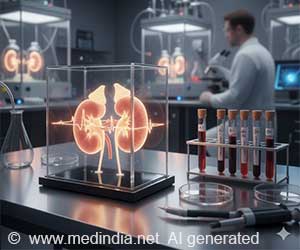Lung transplants can be successful in adolescents and young children but proper resources and training for staff is needed to ensure the therapy is successful.
Lung transplants can be successful in adolescents and young children but proper resources and training for staff is needed to ensure the therapy is successful, according to a study published in the latest Medical Journal of Australia.
Associate Professor Allan Glanville, Director of Lung Transplantation and Thoracic Medicine at St Vincent’s Hospital in Sydney, and his co-authors, examined the outcomes of adolescent lung transplant patients treated at an adult hospital between 1991 and 2006.They found the survival rate at five years after lung transplant was 38 per cent for those transplanted before January 2000, and 74 per cent for those transplanted since then.
“Currently in Australia, there is no dedicated stand-alone paediatric service for lung transplantation (LTx),” Professor Glanville says.
“Our data show that LTx can be a successful therapy for adolescent patients with end-stage lung disease when performed at an adult hospital with extensive LTx experience.
“Indeed there could be little doubt that our nine patients who were dependent on assisted ventilation or extracorporeal membrane oxygen support derived a real survival benefit from LTx, as four patients in particular were within days of death.”
Prof Glanville emphasises the importance of staff training and resources to manage the specific needs of adolescents.
In a related editorial in the Journal, Associate Professor Gregory Snell, Medical Head of the Lung Transplant Service at The Alfred Hospital in Melbourne, and his colleagues say there are medical, psychosocial, and legal issues specific to LTx in adolescents and children.
The Medical Journal of Australia is a publication of the Australian Medical Association.
Source-AMA
SRM/M
 MEDINDIA
MEDINDIA
 Email
Email








